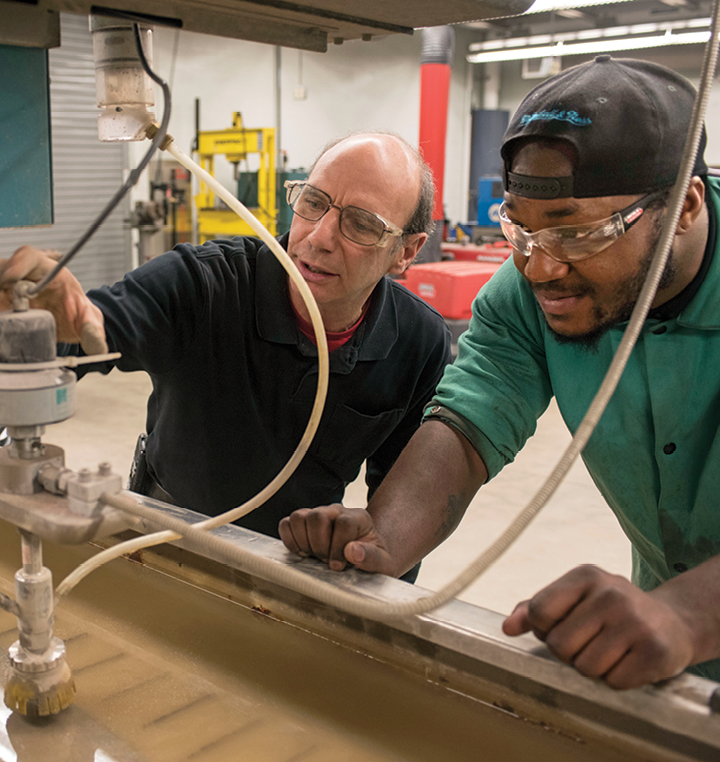GOP Lawmakers Release Workforce Plan

Connecticut Senate Republican lawmakers released workforce development proposals Feb. 28 focused on filling jobs in the trades, healthcare, and teaching.
Lawmakers cited the state’s labor shortage crisis in releasing a policy plan targeting career development, work-based learning, vocational programs, and trade school enrollment.
The CBIA/Marcum 2022 Survey of Connecticut Businesses showed that 85% of employers experienced difficulty finding and retaining employees, with 39% saying the lack of skilled workers was the greatest growth barrier.
Connecticut employers added 32,100 jobs in 2022, at 2% just the 38th best growth in the country, despite near record-high job openings.
Connecticut’s labor force has declined by 53,700 since February 2020, representing more than one-third of the New England region’s losses.
Pathways
Senate Republican Leader Kevin Kelly (R-Stratford) said the plan “represents a pathway to opportunity and prosperity for Connecticut families.”
“These proposals will create opportunities for people of all ages across our state,” he said.
“We want to support our young people, develop our workforce, and address the growing demand for tradespeople, teachers, and healthcare workers.”

The plan includes:
- Develop a new program for an accelerated pathway to certification for teachers in trades
- Expand reciprocity opportunities for out-of-state teachers
- Work with the Connecticut Hospital Association to develop curriculum for a high school healthcare academy
- Require high schools to discuss the benefits of attending a trade school alongside any discussions of enrolling at a traditional two- or four-year college
- Examines barriers to transportation for work-based learning experiences.
- Develop guidelines for hosting successful job fairs at high schools
- Reestablishes a vo-tech ambassador program to share information with students in middle schools
- Develop a program to reach out to high school graduates not attending college or working in a trade within three months of graduation regarding alternative career pathways
- Initiate a state review and audit of workforce development programs to assess effectiveness
- Require financial literacy education in Connecticut schools.
- Creates a “Buy CT to Build CT” program to incentivize defense contractors to create and support jobs
‘College Not for Everybody’
“College isn’t for everyone,” said Sen. Henri Martin (R-Bristol), ranking member of the legislature’s Commerce Committee. “And we have a major demand for jobs in the trades.
“Employers need more welders, plumbers, electricians, and HVAC technicians. They also need people with manufacturing skills as well as culinary arts training.
“We need to listen to our job creators. As lawmakers, we should work together to create those paths to lifelong careers and address the teacher and healthcare worker shortages.”
“We should work together to create those paths to lifelong careers and address the teacher and healthcare worker shortages.”
Sen. Henri Martin
Sen. Paul Cicarella (R-North Haven) said the plan is designed to realign the k-12 education system with workforce needs.
“We must work together to break down these silos and leverage best practices to ensure that our state funding benefits Connecticut job-seekers and employers,” he said.
CBIA, along with affiliate ReadyCT, supports overhauling teacher certification regulations to streamline the process to certification.
CBIA also supports license reciprocity and will continue to advocate for removing barriers to entry to in-demand careers.
For more information, contact CBIA’s Ashley Zane (860.244.1169) | @AshleyZane9.
RELATED
EXPLORE BY CATEGORY
Stay Connected with CBIA News Digests
The latest news and information delivered directly to your inbox.


